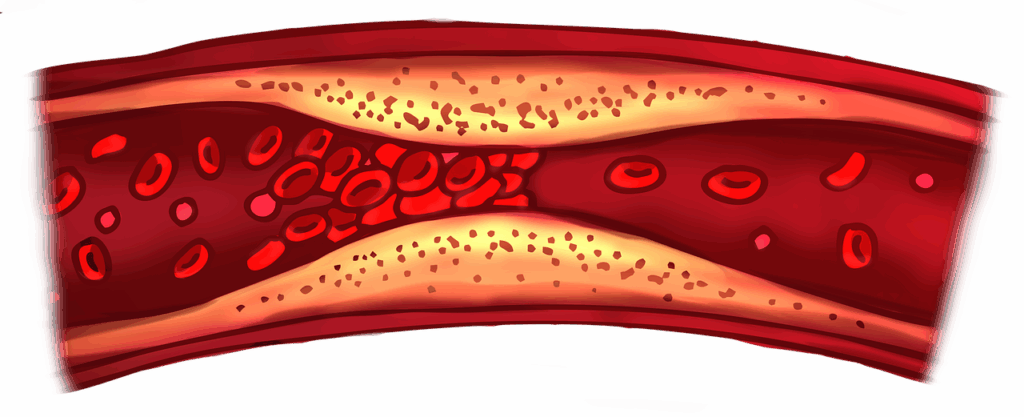
Life is a precious journey, and for many, the aspiration is to live it to the fullest for as long as possible. With the Centers for Disease Control and Prevention (CDC) reporting the average life expectancy for a U.S. adult at 77.5 years as of 2022, and women typically living longer than men, at 80.2 versus 74.8 years, respectively, it’s clear we’re constantly seeking ways to extend these years and enhance our vitality. While factors like genetics or unforeseen accidents are undeniably beyond our control, there’s a powerful realm of influence we do possess: our daily habits.
Indeed, your overall lifestyle holds the key to unlocking a longer, healthier existence. It’s truly inspiring to consider that many adults have the potential to live to 90 years old or even longer, simply by embracing a healthy lifestyle. This incredible potential often hinges on the deliberate choice to shed detrimental habits that might otherwise contribute to a shortened life.
This journey towards longevity is not about drastic, overnight transformations, but rather a mindful evaluation of our everyday choices concerning diet, physical activity, sleep patterns, and much more. Join us as we explore some of these commonly overlooked habits, revealing how they might be subtly impacting your lifespan and, more importantly, what actionable steps you can take to reclaim your health and boost your chances of a vibrant, extended life.

1. **Not Staying Active**: In today’s world, a sedentary lifestyle has unfortunately become a prevalent part of the typical American experience. This is often a direct result of desk-bound work environments, lengthy commutes, and the pervasive allure of electronic entertainment devices. While sitting is often unavoidable, the crucial takeaway is that a lack of regular physical activity can have profound and detrimental effects on your health, particularly your cardiovascular system.
The statistics underscore the severity of this issue. According to the CDC, heart disease stands as the leading cause of death in the U.S., claiming an estimated 702,880 lives in 2022 alone. Insufficient exercise is a significant contributor to this grim reality, fostering poor heart health. While the dangers of excessive sitting might feel disheartening, the good news is that concrete steps can be taken to reverse this trend. The general minimum recommendation for adults is to engage in at least 30 minutes of moderate activity on most days of the week.
Incorporating aerobic activities that you genuinely enjoy, such as brisk walking, cycling, or swimming, can make a significant difference. Embracing such practices will not only strengthen your heart but can also substantially reduce your future risk of suffering a heart attack and developing coronary heart disease. It’s about finding joyful ways to move your body and make it a regular part of your life.

2. **Skipping Strength Training**: While engaging in aerobic exercise is widely recognized for its ability to prevent premature death, emerging research suggests that the scope of beneficial workouts extends even further. It turns out that strength-training exercises, encompassing resistance or weight-lifting workouts, also play a vital role in helping you live longer. For most individuals, the greatest benefits are realized when strength training is used as a powerful complement to their aerobic exercise routine.
A compelling study published in the British Journal of Sports Medicine highlighted these advantages. Researchers found that both types of exercises were associated with a reduced risk of heart disease and related deaths among a large cohort of 99,713 adult participants. This underscores the comprehensive protective effects of a well-rounded exercise regimen, even if the study noted no impact on cancer-related deaths from this combination.
Before you consider joining a gym or retrieving dormant weight equipment, it’s wise to formulate a plan for seamlessly integrating strength training into your routine. The aforementioned study indicated that participants gleaned heart-healthy benefits from just one to two weightlifting workouts per week. A practical and excellent starting goal for overall health and mitigating the risk of premature death is to aim for strength training on two non-consecutive days per week. Remember, you’re not confined to traditional weight machines and dumbbells; you can diversify your routine and combat boredom by incorporating activities that build muscle like gardening, using resistance bands, or engaging in various bodyweight exercises.

3. **Sleeping Too Little (or Too Much)**: Sleep, an activity that often eludes many adults in our fast-paced world, is unfortunately sometimes perceived as a luxury rather than a fundamental necessity. However, despite all the advancements we’ve made, there are certain core aspects of human biology that remain inescapable, and adequate sleep is undoubtedly one of them. The science is increasingly clear: consistently sleeping less than six hours per night can significantly elevate your risk of chronic illnesses and consequently shorten your lifespan.
Among the serious health conditions linked to insufficient sleep are heart disease and diabetes. Furthermore, some studies even suggest that chronic sleep deprivation could increase an older adult’s risk of developing dementia. Surprisingly, the pendulum can also swing too far in the opposite direction; sleeping excessively can also increase the risk of premature death, as well as heart disease and diabetes. Researchers theorize that sleeping too much may correlate with insufficient daytime activity, which in turn contributes to a higher risk of heart disease and other chronic illnesses.
It’s also worth noting that consistently sleeping too much might be indicative of an undiagnosed health condition or even depression, signaling a need to consult a healthcare professional. As a comprehensive review in the journal Sleep succinctly put it, both too little and too much sleep are independently associated with an increased risk of premature death. While individual sleep needs can vary, the authors of this review emphasize that consistently aiming for between six and eight hours of sleep every night is indeed optimal for safeguarding your overall health and well-being.

4. **Ignoring Chronic Stress**: Stress is an unavoidable part of life, a normal human response that we all experience from time to time, and by itself, it will not lead to a premature death. However, when stress becomes chronic, it transforms into a silent but formidable threat to your longevity. Research consistently demonstrates that prolonged, unmanaged stress can significantly increase your risk of developing diseases that, over time, can shorten your lifespan, including conditions like anxiety and heart disease.
This profound impact is largely attributed to the sustained elevation of stress hormones, such as adrenaline and cortisol. When these powerful hormones remain at high levels in the long term, they can lead to an increased risk of high blood pressure, a well-known precursor to many cardiovascular issues. Moreover, these stress hormones possess the capacity to narrow the arteries within your heart, further compromising its health. A compelling 2022 cohort study published in The Lancet identified a clear association between stress disorders and an elevated risk of premature death.
The authors of this study also suggested that co-morbidities, such as a poor diet, smoking, and the presence of autoimmune diseases, could further contribute to this heightened risk. Another impactful study, published in JAMA Psychiatry in 2020, even estimated that severe anxiety and depression could increase the chances of premature death by an alarming 134%. Clearly, stress management is not merely about feeling better on a day-to-day basis; it holds the potential to genuinely save your life. Experts advocate for incorporating relaxing activities known to decrease stress hormones, such as yoga and deep breathing exercises, which can also serendipitously boost your heart health. Furthermore, cultivating a healthy lifestyle, maintaining a positive attitude, setting clear personal boundaries, and actively pursuing engaging hobbies can all contribute significantly to decreasing your regular stress levels.

5. **Letting Friendships Go (Social Isolation)**: As we navigate through adulthood, the demands of work and family commitments can often make it challenging to carve out time for maintaining friendships. Finding space in a busy schedule for social engagements can feel like an uphill battle. However, mounting research underscores a critical, often-overlooked truth: chronic loneliness and pervasive social isolation are significant risk factors for premature death. The impact of disconnectedness extends beyond mere feelings; it has tangible health consequences.
A powerful review published in Perspectives on Psychological Science revealed that not only did objective loneliness increase the risk of premature death, but even the mere *perception* of being lonely carried a substantial risk. Across various studies compiled between 1980 and 2014, the authors found this risk factor to be as high as 32%. Further research, highlighted in BMC Medicine, suggests that chronic loneliness could heighten the risk of cardiovascular disease and related fatalities, emphasizing the profound link between our social well-being and physical health.
If you find it hard to recall the last time you genuinely connected with your friends or extended family, it might be a clear signal to prioritize setting up a coffee date or simply making a phone call to rekindle those vital connections. Beyond reconnecting with your existing circle, actively seeking opportunities to meet new people on a regular basis can be incredibly beneficial in staving off feelings of loneliness and isolation. Consider volunteering, engaging in conversations with your neighbors, or attending local community events. Prioritizing these relationships isn’t just about feeling happier; it’s a profound investment in a longer, more fulfilling life.

6. **Smoking**: For decades, the profoundly negative effects of smoking on lung health have been widely recognized, but the scope of its damage extends far beyond respiratory issues. Researchers have unequivocally confirmed that the average life expectancy of an individual who smokes is approximately 10 years shorter compared to that of a non-smoker. This stark reality positions tobacco use as the number one cause of preventable death, a sobering fact highlighted by the CDC.
A dire warning was reiterated in a 2024 editorial published in the New England Journal of Medicine, emphasizing that between 50% and 70% of the 1.1 billion people who smoke worldwide will ultimately die from tobacco-related causes. The perils of smoking manifest in a multitude of health problems that significantly increase your risk of premature death. These include various other cancers, severe coronary heart disease, and debilitating chronic obstructive pulmonary disease (COPD).
Despite these grim statistics, there is a powerful message of hope: it is absolutely possible to mitigate the risk of premature death associated with smoking. The younger you are when you quit, the more dramatically your risk of dying prematurely diminishes. To assist in this critical journey, consider the mnemonic START: S= Set a quit Date; T= Tell family and friends that you plan to quit; A= Anticipate and plan ahead for hard times; R= Remove tobacco products from your home, car, and work; T= Talk to your doctor about smoking cessation strategies. Smoking truly damages nearly every organ in the body, causes a myriad of cardiovascular problems, and escalates the risk of coronary heart disease and stroke by up to four times compared to non-smokers, contributing to an astounding 480,000 deaths each year in the United States, representing about one in five fatalities.

7. **Excessive Alcohol Consumption**: Alcohol consumption often presents a perplexing array of mixed messages concerning its impact on health, particularly when the discussion turns to red wine. While the proportion of U.S. adults who consume alcohol has seen a decrease compared to some previous decades, a 2023 Gallup Poll still indicated that a significant 62% regularly partake. However, this enjoyment can come at a considerable cost to one’s health and longevity.
Regular and excessive alcohol intake is definitively linked with an increased risk of heart disease, serious liver disease, various cancers, and a higher incidence of accidents. Current estimates are particularly sobering, suggesting that heavy drinking can shave several years off your lifespan. More specifically, consuming over 25 drinks per week is associated with losing between four to five years from your life, a clear indicator of the profound long-term consequences.
For many years, there was a widespread belief that moderate red wine consumption might offer certain health benefits, largely attributed to resveratrol, a type of polyphenol thought to provide protective benefits for the heart. However, it’s crucial to understand that such potential benefits are observed only in genuinely moderate drinkers, and critically, it remains unclear whether every individual would indeed benefit from drinking red wine for this purpose. The most prudent and health-conscious approach is always to engage in an open conversation with your doctor about whether alcohol, even in moderation, is safe for your unique health profile. Furthermore, it’s strongly advised not to commence drinking solely to try and reap the possible benefits of resveratrol.
Life is a continuous journey of learning and adaptation, and as we gain a deeper understanding of our habits, we empower ourselves to make choices that truly support a longer, more vibrant existence. While the initial habits we explored laid a crucial foundation, there are several other common practices that, though seemingly benign, can subtly yet significantly shave years off your life. Let’s delve into these additional, often insidious, lifestyle patterns that demand our attention for the sake of our longevity and well-being.

8. **Yo-Yo Dieting**: The pursuit of weight loss is a common aspiration for many adults, with a staggering 45% in the U.S. reportedly trying a new diet each year. Unfortunately, a significant number of these diets tend to be overly restrictive, making them unsustainable in the long run. This often leads to a disheartening cycle where individuals regain the weight, sometimes even surpassing their initial weight, only to attempt another restrictive diet and repeat the pattern. This continuous back-and-forth, commonly known as ‘yo-yo dieting,’ presents more profound risks than simply failing to maintain weight loss.
These cycles of stringent dieting followed by weight regain have been shown to contribute to muscle loss, a factor that can impact metabolic health and overall physical resilience. More alarmingly, yo-yo dieting can elevate your risk of developing chronic diseases, including serious conditions like liver disease and heart disease. Research has further illuminated this peril, indicating that individuals who experience significant weight fluctuations, alongside constant shifts in blood sugar, blood pressure, and cholesterol levels, were found to be up to 40% more likely to suffer a stroke or heart attack.
Such findings can certainly feel discouraging for anyone striving to improve their health through weight management. However, the path to long-term success, as in many aspects of life, lies in embracing gradual, sustainable changes. Researchers consistently find that individuals achieve more enduring weight loss when they prioritize fiber-rich foods, integrate regular exercise and strength training into their routine, and learn to eat mindfully in response to genuine hunger cues. By consciously avoiding the pitfalls of yo-yo dieting, you can significantly decrease your risk of premature death stemming from adverse metabolic changes and the onset of chronic diseases.

9. **Consuming Artificial Sweeteners**: The early 21st century witnessed a surge in the popularity of artificial sweeteners, presenting a seemingly ideal solution for satisfying a sweet tooth without the caloric load of refined sugar. These sweeteners continue to be perceived as beneficial in small quantities, particularly for individuals managing diabetes, offering a sugar alternative. While research findings on the direct link between artificial sweeteners and cancer remain mixed and inconclusive, a growing body of evidence suggests they may contribute to a range of other health issues, depending on the specific type consumed.
Among the potential health problems associated with certain artificial sweeteners are an increased risk of cardiovascular disease and stroke, as well as various gut discomforts such as bloating and gas. The complexity of understanding the precise pros and cons of both natural sugar and artificial sweeteners can indeed be confusing for consumers. To err on the side of caution and prioritize health, the most prudent approach may be to enjoy these sweeteners in very small amounts and only on an occasional basis, rather than as a daily staple.
It is important to note that while artificial sweeteners are not directly linked to mortality in all studies, some of the associated diseases they may contribute to, such as heart disease, stroke, and obesity, are undeniably deadly. In a significant move reflective of evolving understanding, the World Health Organization (WHO) no longer recommends that individuals consume artificial sweeteners as part of any plan specifically designed for weight loss, underscoring the shift in public health guidance surrounding their use.

10. **Eating Too Much Sodium**: While research on the adverse health effects of artificial sweeteners is still ongoing and evolving, the scientific consensus regarding the impact of excessive sodium intake on your health is considerably more established. A high sodium intake is definitively linked to numerous health conditions that can significantly shorten your lifespan, including serious cardiovascular issues like heart disease, kidney disease, and even certain gastrointestinal cancers. The statistics are quite alarming: while the recommended daily maximum intake of sodium ranges between 1,500 and 2,300 milligrams, the World Health Organization estimates that the average adult consumes a staggering 4,310 milligrams per day. Alarmingly, the WHO also reports that 1.89 million deaths annually are directly connected with excess sodium consumption.
In our modern world, where convenience often takes precedence, many individuals frequently rely on prepared, frozen, and fast foods. Unfortunately, beyond the obvious table salt shaker, these highly convenient options represent some of the most common and pervasive sources of dietary sodium. Furthermore, seemingly innocuous items like deli meats, canned soups, and even many pasta sauces can be sneaky sources that significantly contribute to your daily sodium intake without you even realizing it.
Taking proactive steps to decrease sodium in your diet can yield substantial health benefits. A great way to start is by cooking at home whenever possible, focusing on whole, unprocessed foods, and utilizing a variety of spices and herbs to flavor your meals instead of relying heavily on table salt. This mindful approach will not only help lower your blood pressure if you are currently experiencing hypertension and prevent other potentially deadly diseases, but reducing sodium consumption is also a critical preventative measure against the development of high blood pressure in the first place, safeguarding your long-term cardiovascular health.

11. **Skipping Your Annual Physical**: In the hustle and bustle of modern life, committing to an annual physical examination with your primary care doctor can often feel like a formidable task. Despite its occurrence only once a year, carving out the time can be difficult. Furthermore, for individuals without health insurance, the cost associated with a doctor’s visit, especially when not feeling acutely unwell, can be a significant barrier. A 2018 survey conducted by the University of Chicago starkly revealed that a concerning 40% of adults opted to skip necessary medical care due to cost-related concerns.
Despite these entirely valid concerns, overlooking your annual physical is a habit that could, quite literally, cost you your life. During a yearly physical, your doctor performs a comprehensive assessment of your health. This typically includes checking your blood pressure, ordering vital blood tests to screen for abnormalities in glucose levels, blood cholesterol, liver function, and blood cell counts. They also listen to your heart and lungs, perform crucial cancer screenings, conduct an abdominal exam, and can order any necessary follow-up lab work or imaging tests. Based on their findings, they possess the expertise to prescribe potentially life-saving treatments for any problems or emerging conditions that are identified early on.
For a clearer understanding of the critical role these check-ups play, consider that the Centers for Disease Control and Prevention (CDC) identifies some of the most common causes of death in the United States as heart disease, various cancers, diabetes, liver disease, and chronic lower respiratory diseases such as asthma and Chronic Obstructive Pulmonary Disease (COPD). Critically, the early signs of all these severe conditions can often be detected during a routine annual physical, allowing for timely intervention and significantly improving outcomes, ultimately safeguarding your chances for a longer, healthier life.
As we conclude this exploration of habits that can influence our lifespan, it becomes abundantly clear that our daily choices hold immense power. From the food we eat and the air we breathe to the connections we nurture and the activities we engage in, each decision contributes to the complex tapestry of our health and longevity. While life’s uncertainties are undeniable, empowering ourselves with knowledge and taking actionable steps to cultivate positive habits is the most profound investment we can make in our future. It’s not about achieving perfection, but about embracing consistent, mindful efforts that steer us toward a more vibrant, extended life, full of vitality and well-being. Here’s to making informed choices and living life to its fullest, for as long as possible!



